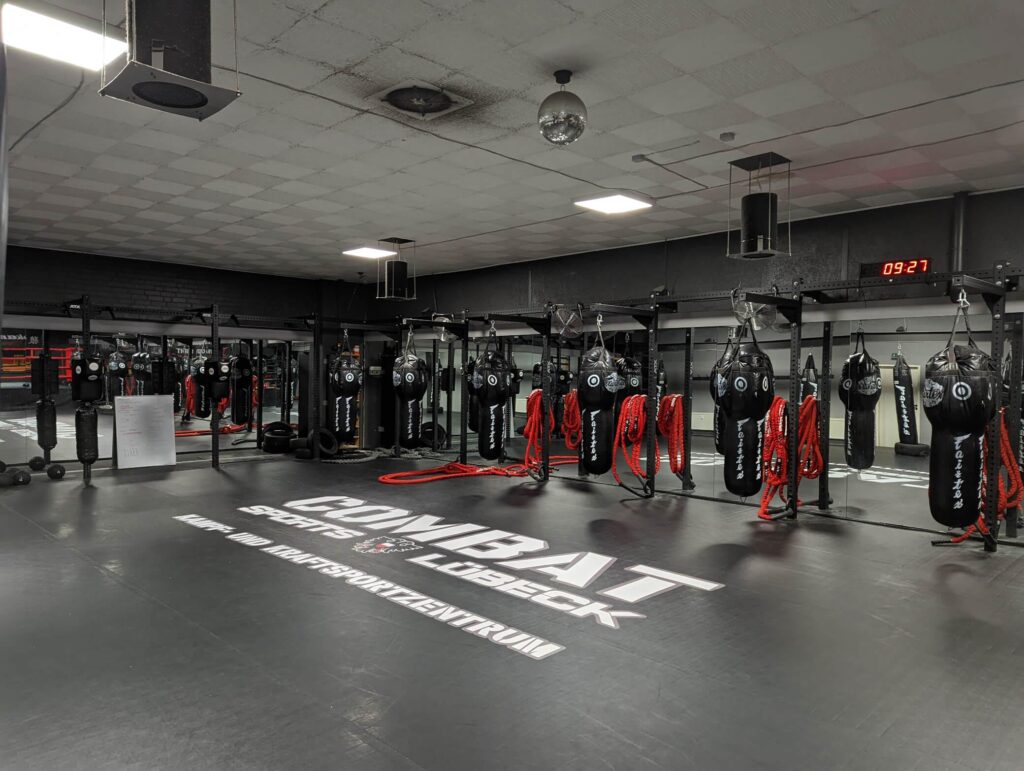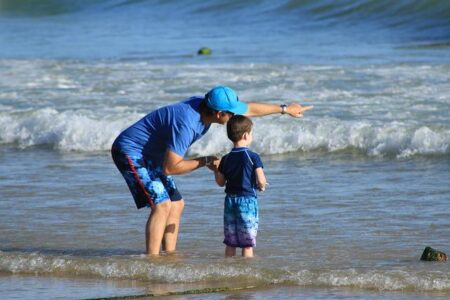Combat sports have long been celebrated for their rigorous physical demands and mental discipline, yet their impact on health and inclusivity remains a topic of evolving discussion. A recent opinion paper published in Frontiers sheds new light on how these athletic pursuits can advance wellbeing among both athletes and practitioners. Challenging outdated stereotypes and highlighting progressive approaches, the article argues for a more holistic understanding of combat sports-not merely as a test of strength and endurance, but as a vehicle for promoting health, psychological resilience, and social inclusion. This timely perspective invites stakeholders across the sporting world to rethink how combat disciplines can contribute positively to individual and community wellbeing.
Combat Sports and Mental Health Challenges Facing Athletes
In the high-stakes world of combat sports, athletes face unique mental health challenges often overshadowed by the physical intensity of their disciplines. Pressure to perform, injuries, and the culture of toughness can contribute to anxiety, depression, and isolation. These issues are exacerbated by stigma surrounding mental health, which remains pervasive in many combat sport communities. Addressing these challenges requires a shift towards openness and proactive support systems that prioritize psychological wellbeing alongside physical training.
Effective strategies to support mental health in combat athletes include:
- Integrated mental health services within training facilities, offering easy access to counseling and psychotherapy.
- Educational programs tailored to coaches and practitioners to recognize early signs of distress and promote mental resilience.
- Peer support networks that reduce stigma by fostering open conversations about emotional struggles.
| Common Challenges | Suggested Interventions |
|---|---|
| Performance Anxiety | Mindfulness and stress management workshops |
| Post-Injury Depression | Ongoing psychological support and rehab integration |
| Social Isolation | Group therapy and peer mentorship programs |
Promoting Physical Wellbeing Through Tailored Training Programs
Customized training regimens have become the cornerstone for enhancing physical wellbeing within combat sports communities. Recognizing individual differences in fitness levels, injury history, and psychological readiness allows coaches and practitioners to design programs that not only optimize athletic performance but also mitigate risks associated with overtraining and burnout. These personalized approaches go beyond generic workout plans, incorporating varied intensity, recovery periods, and technical skill development tailored to each athlete’s unique profile. As a result, participants experience greater resilience, improved body mechanics, and sustained motivation over time.
Key components of tailored training programs include:
- Comprehensive initial assessments measuring flexibility, strength, and cardiovascular health.
- Adjustable difficulty levels responding dynamically to progress and setbacks.
- Integration of cross-disciplinary techniques such as yoga or pilates for injury prevention.
- Mental health support embedded within physical training protocols to enhance overall wellbeing.
| Program Aspect | Benefits |
|---|---|
| Individualized Progress Tracking | Enables timely adjustments and personalized milestones |
| Balanced Training Loads | Reduces injury rates and supports longevity in the sport |
| Holistic Recovery Techniques | Improves mental focus and physical regeneration |
| Inclusion of Adaptive Exercises | Ensures accessibility for practitioners of diverse abilities |
Fostering Inclusivity and Diversity in Combat Sports Communities
Creating spaces where every athlete feels valued is essential to the future of combat sports. The barriers that have historically discouraged participation from marginalized groups-whether based on gender, race, ethnicity, or ability-are gradually being dismantled through intentional initiatives. Promoting diversity is not only a moral imperative but also enriches the sport by introducing varied perspectives and styles, challenging stereotypes, and fostering innovation within training and competition. Organizations and gyms embracing inclusivity are seeing increased retention rates and broader community engagement, reflecting a shift toward a more representative combat sports culture.
Key strategies gaining traction include:
- Implementing anti-discrimination policies that are well-publicized and enforced
- Offering scholarships and support programs targeted at underrepresented groups
- Providing gender-neutral facilities and programming to welcome all identities
- Educating coaches and staff on cultural competency and bias reduction
| Initiative | Impact |
|---|---|
| Diversity Workshops | Improved team cohesion |
| Inclusive Marketing | Broadened outreach |
| Adaptive Training Programs | Higher participation rates |
Policy Recommendations to Support Health and Inclusion in Practitioners
To foster a safer and more inclusive environment for combat sports practitioners, policymakers should prioritize comprehensive health protocols that extend beyond injury prevention. This includes mandatory access to regular mental health screenings and the integration of psychological support services tailored to the unique pressures of combat sports. Furthermore, fostering inclusivity demands targeted initiatives such as anti-discrimination training programs and the promotion of diverse representation within coaching staff and leadership roles. Investments in community outreach can also encourage participation from underrepresented groups, breaking down socioeconomic and cultural barriers that persist in the sport.
Key policy actions to consider include:
- Implementing standardized concussion management protocols across all competition levels
- Providing funding for mental wellness resources accessible to all athletes and practitioners
- Establishing mentorship programs pairing experienced athletes with newcomers from marginalized backgrounds
- Creating anonymous reporting channels to address harassment and discrimination swiftly
- Encouraging collaboration between sports organizations and healthcare providers for ongoing practitioner education
| Policy Area | Action | Expected Outcome |
|---|---|---|
| Health Monitoring | Routine holistic health assessments | Early detection and management of physical and mental issues |
| Inclusivity Training | Workshops on diversity and bias reduction | Reduced discrimination, improved team cohesion |
| Support Systems | Accessible counseling and mentorship | Increased athlete resilience and retention |
Wrapping Up
In an era where physical and mental wellbeing is increasingly prioritized, the intersection of combat sports and health offers a promising frontier. This opinion paper from Frontiers highlights how embracing inclusivity within these traditionally tough disciplines not only enhances athletic performance but also fosters community and resilience among practitioners. As combat sports continue to evolve, their potential to advance holistic wellbeing underscores the importance of supportive environments that nurture both body and mind. The conversation around health and inclusion in these arenas is just beginning-and its impact could reshape the future of sport and wellness alike.





